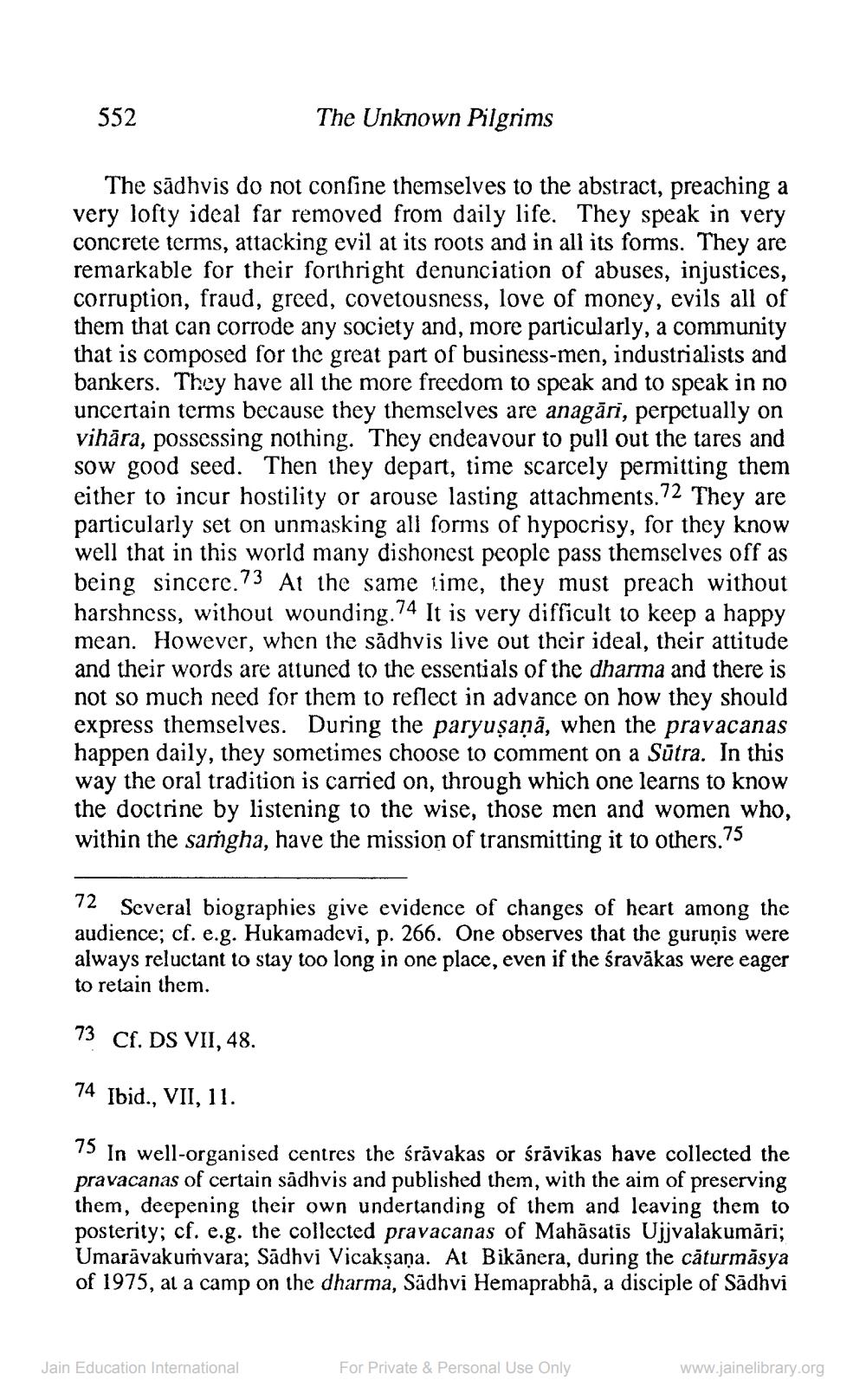________________
552
The Unknown Pilgrims
The sādhvis do not confine themselves to the abstract, preaching a very lofty ideal far removed from daily life. They speak in very
te terms, attacking evil at its roots and in all its forms. They are remarkable for their forthright denunciation of abuses, injustices, corruption, fraud, greed, covetousness, love of money, evils all of them that can corrode any society and, more particularly, a community that is composed for the great part of business-men, industrialists and bankers. They have all the more freedom to speak and to speak in no uncertain terms because they themselves are anagāri, perpetually on vihāra, possessing nothing. They endeavour to pull out the tares and sow good seed. Then they depart, time scarcely permitting them either to incur hostility or arouse lasting attachments. They are particularly set on unmasking all forms of hypocrisy, for they know well that in this world many dishonest people pass themselves off as being sincere.73 At the same time, they must preach without harshness, without wounding. 74 It is very difficult to keep a happy mean. However, when the sādhvis live out their ideal, their attitude and their words are attuned to the essentials of the dharma and there is not so much need for them to reflect in advance on how they should express themselves. During the paryuşaņā, when the pravacanas happen daily, they sometimes choose to comment on a Sūtra. In this way the oral tradition is carried on, through which one learns to know the doctrine by listening to the wise, those men and women who, within the samgha, have the mission of transmitting it to others.75
72 Several biographies give evidence of changes of heart among the audience; cf. e.g. Hukamadevi, p. 266. One observes that the guruņis were always reluctant to stay too long in one place, even if the śravikas were eager to retain them.
73 Cf. DS VII, 48.
74 Ibid., VII, 11.
1 In well-organised centres the sråvakas or srāvikas have collected the pravacanas of certain sādhvis and published them, with the aim of preserving them, deepening their own undertanding of them and leaving them to posterity; cf. e.g. the collected pravacanas of Mahāsatis Ujjvalakumări; Umarāvakusvara; Sadhvi Vicaksana. At Bikānera, during the căturmasya of 1975, at a camp on the dharma, Sadhvi Hemaprabhā, a disciple of Sadhvi
Jain Education International
For Private & Personal Use Only
www.jainelibrary.org




